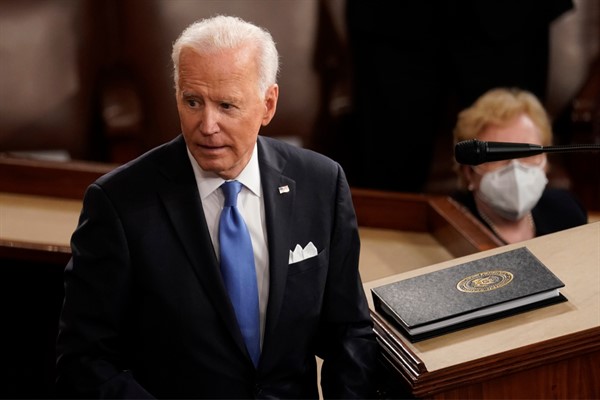For those excited by Joe Biden’s campaign promises to restore democracy promotion as a central plank of U.S. foreign policy, the months following last year’s presidential election were hair-raising. As Donald Trump refused to concede defeat and his supporters spread baseless conspiracy theories about election fraud, experts raised alarms that the fraught climate and Republican intransigence were eroding America’s global reputation. The ensuing loss of credibility, they warned, would make it all the more difficult for the U.S. to hold other countries accountable for authoritarian behavior.
One insurrection, one inauguration, and 100 days later, the democracy promotion community has found some encouragement in Biden’s early acts in office. During a speech on his administration’s foreign policy agenda in early February, Biden deemed democratic values the “grounding wire of our global foreign policy.” That strong rhetoric has been accompanied by several actions that indicate his administration’s intent to spend significant political capital on human rights and democracy. In the first face-to-face meeting between senior U.S. and Chinese officials, for example, Secretary of State Antony Blinken offered sharp criticisms of Beijing’s human rights abuses in Xinjiang, Hong Kong and Taiwan. The U.S. also moved quickly to impose sanctions on Russian officials and entities after the imprisonment of opposition leader Alexei Navalny, and on members of Myanmar’s military after their early-February coup.
But experts say today’s challenges will require more far-reaching efforts and reforms. 2020 was the 15th consecutive year in which democracy declined across the world, according to the advocacy group Freedom House, with nearly 75 percent of the world’s population living in a country that experienced democratic decline last year. The democracy promotion community has shifted from viewing this 15-year recession less as a trend that can be reversed, and more as a fundamental restructuring of global power, according to Ashley Quarcoo, a senior fellow in the Democracy, Conflict and Governance Program at the Carnegie Endowment for International Peace.

